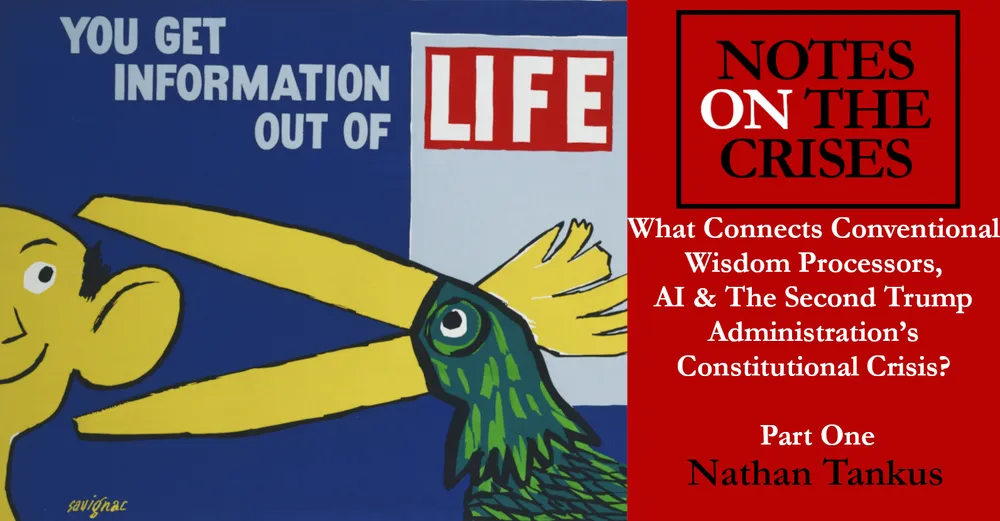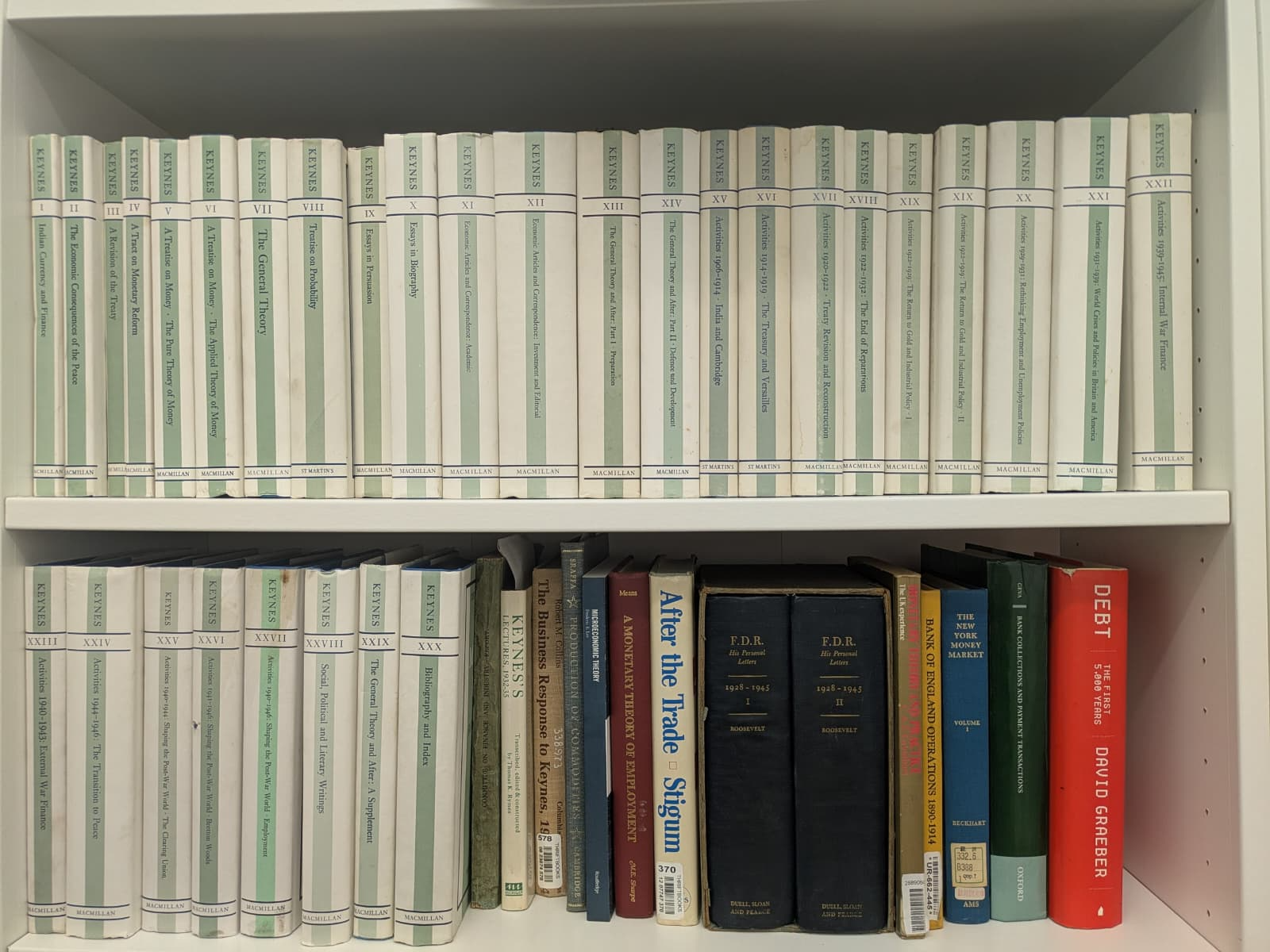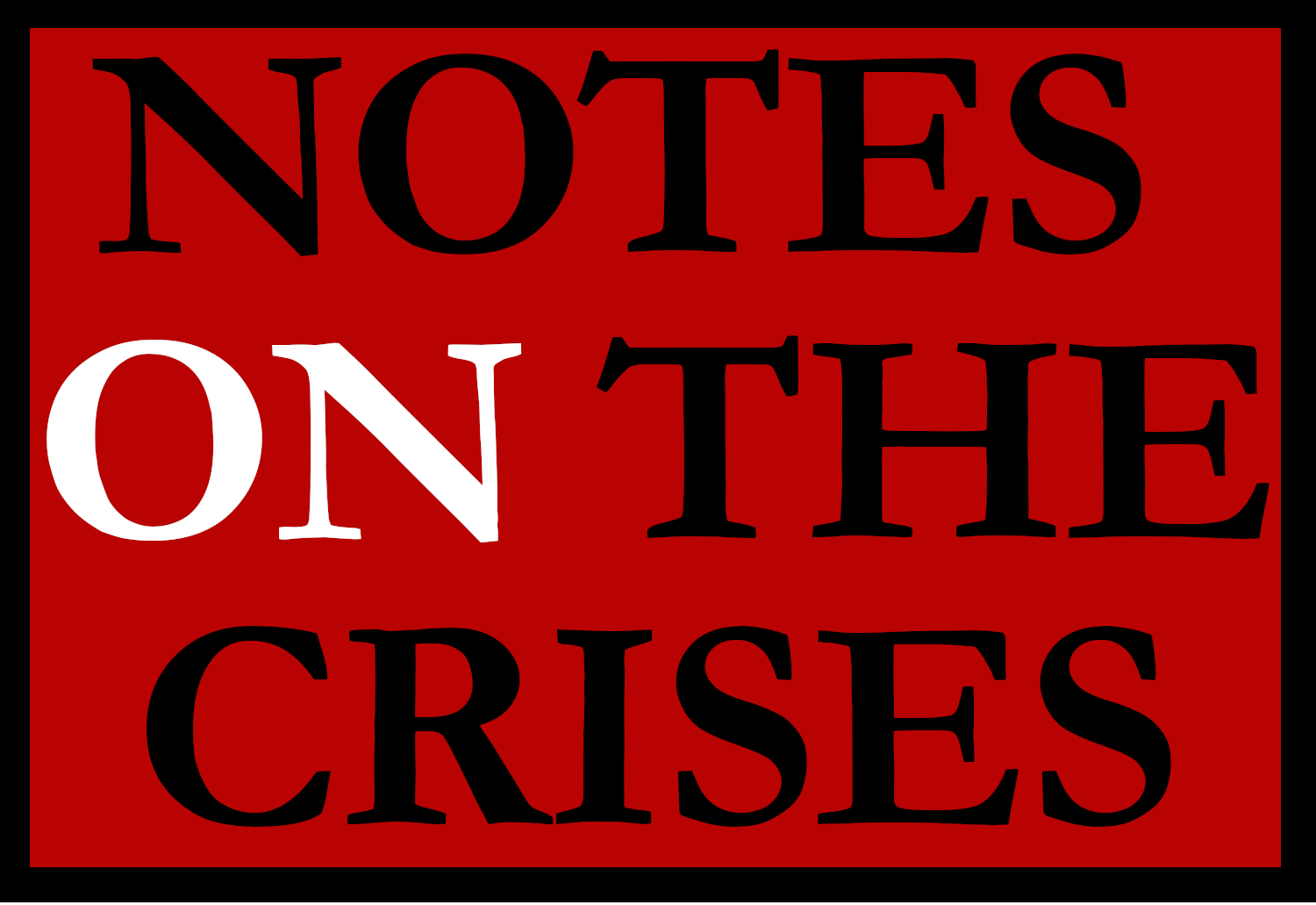What Connects Conventional Wisdom Processors, AI and The Second Trump Administration’s Constitutional Crisis? Part One

This is a premium piece of Notes on the Crises.
Become a Paid Subscriber to read this piece and support Notes on the Crises
This year I coined the phrase conventional wisdom processor to describe how certain types of markets—such as stock & commodity exchanges—function. My central idea is that these markets will respond to new information but only when filtered through the predilections and beliefs of the central daily participants in these markets. Well, if new information is not valued by these participants—or at least the average participant expects the average participant not to value that information—it will not impact those markets. An obvious example would be a new scientific report suggesting that climate change was accelerating faster than previously expected.
This phrase seems to be striking a chord with many people out there, especially when I used it in my Politico column last month. That column focused on another type of expertise not valued on stock markets: expertise on constitutional law and/or threats to democracy.
The most substantive engagement with my idea came from Paul Krugman in his New York Times Column in exile Newsletter:
My read of economic and financial history is that market pricing almost never takes into account the possibility of huge, disruptive events, even when the strong possibility of such events should be obvious. The usual pattern, instead, is one of market complacency until the last possible moment. That is, markets act as if everything is normal until it’s blindingly obvious that it isn’t.
The inimitable Nathan Tankus summarizes this by saying that the market is not, as stylized economic models would have us believe, a mechanism that pools the knowledge and informed judgment of millions of investors. It is, instead, a “conventional wisdom processor.” That is, it reflects views that seem safe to hold because many other people hold them — and the crowd only abandons those views when they become blatantly unsustainable.
John Maynard Keynes said something similar in Chapter 12 of his General Theory of Employment, Interest and Money. [emphasis in the original]
Paul is correct that my coinage has a connection to Chapter 12 of Keynes’ magnum opus. I myself linked to it in my original piece, albeit with a far subtler reference: “Or at least, the average wall street stock trader believed the average wall street stock trader believed that. But we won’t get into that mess right now.”
Early in my writing career, I used to explicitly cite all the influences on my argument. I have done less and less of that over the years (as I improved as a writer.) Thinkers can think all day. Writers can only explain a few central ideas at a time. So it's best to leave whatever you don’t plan to explain in the skeletal structure of your prose. An implicit dye, rather than explicit signpost.

Still, Krugman’s generous citation gives me the opportunity to talk about the deeper meaning behind my conventional wisdom processors” coinage. The influence behind the phrase does not start and end at Keynes. Rather, it is meant to be a response to developments within the field of economics over the last sixty years or so. (The General Theory, god help me, will have its ninetieth anniversary next year. The edited collections devoted to the 70th anniversary feel so recent to me…)
In the set of ideas I've spent many years opposing, markets are “information processors”—and market prices reflect a kind of mechanically synthesized agglomeration of knowledge, operating beyond the human capacity to generate or even really understand. Some readers may already see the connection between this description and current events. This series will explain where this “market as information processor” concept came from, the problem it was aimed to solve, and the winding path that led all the way to the turbulence of the second Trump administration—and the role “artificial intelligence” has in that turbulence. A Premium series is the perfect place to reveal the “superstructure” underneath my day to day interventions to my most devoted readers.
Sign up for Notes on the Crises
Currently: Comprehensive coverage of the Trump-Musk Payments Crisis of 2025
